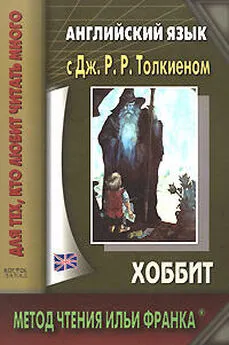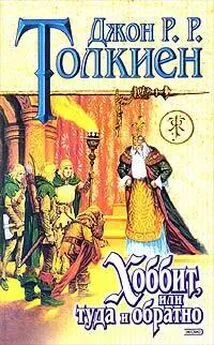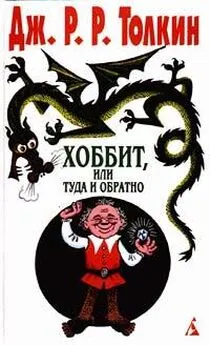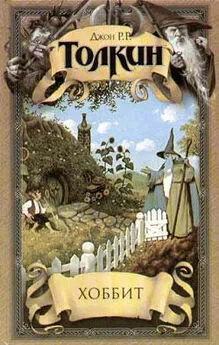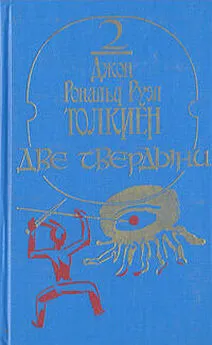Джон Толкиен - Английский язык с Дж. Р. Р. Толкиеном. Хоббит
- Название:Английский язык с Дж. Р. Р. Толкиеном. Хоббит
- Автор:
- Жанр:
- Издательство:АСТ, Восток-Запад
- Год:2008
- Город:Москва
- ISBN:978-5-17-048593-2, 978-5-478-00597-9
- Рейтинг:
- Избранное:Добавить в избранное
-
Отзывы:
-
Ваша оценка:
Джон Толкиен - Английский язык с Дж. Р. Р. Толкиеном. Хоббит краткое содержание
В книге предлагается произведение на английском языке Джона Р. Р. Толкиена «Хоббит», адаптированное (без упрощения текста оригинала) по методу Ильи Франка. Уникальность метода заключается в том, что запоминание слов и выражений происходит за счет их повторяемости, без заучивания и необходимости использовать словарь.
Пособие способствует эффективному освоению языка, может служить дополнением к учебной программе.
Предназначено для студентов, для изучающих английский язык самостоятельно, а также для всех интересующихся английской культурой.
Пособие подготовила Ольга Ламонова.
Английский язык с Дж. Р. Р. Толкиеном. Хоббит - читать онлайн бесплатно полную версию (весь текст целиком)
Интервал:
Закладка:
fought [fɔ: t] cornered [ˈkɔ: nǝd] unawares [ʌnǝˈweǝz]
“That’ll teach ‘em, ” said Tom; for Bifur and Bombur had given a lot of trouble, and fought like mad, as dwarves will when cornered. Thorin came last — and he was not caught unawares. He came expecting mischief, and didn’t need to see his friends’ legs sticking out of sacks to tell him that things were not all well. He stood outside in the shadows some way off, and said:
“What’s all this trouble? Who has been knocking my people about?”
“It’s trolls!” said Bilbo from behind a tree. They had forgotten all about him. “They’re hiding in the bushes with sacks, ” said he.
“O! are they?” said Thorin, and he jumped forward to the fire, before they could leap on him. He caught up a big branch all on fire at one end; and Bert got that end in his eye before he could step aside. That put him out of the battle for a bit.
Bilbo did his best (Бильбо сделал все возможное). He caught hold of Tom’s leg (он ухватился /мертвой/ хваткой за ногу Тома) as well as he could (/так хорошо/ как только мог), it was thick as a young tree-trunk (она была такая же толстая, как ствол молодого деревца) but he was sent spinning up (но был отброшен ударом; to spin — прясть; крутить, вертеть, описывать круги ) into the top of some bushes (на верхушку каких-то кустов), when Tom kicked the sparks up in Thorin’s face (когда Том швырнул ногой искры от костра в лицо Торина). Tom got the branch in his teeth for that (Том получил веткой в зуб за это), and lost one of the front ones (и лишился одного из передних). It made him howl (от этого он завыл; to make smb. do smth. — заставлять, вынуждать ), I can tell you (могу вам сказать). But just at that moment (но как раз в этот момент) William came up behind (сзади подошел Вильям) and popped a sack (и быстро и неожиданно накинул мешок) right over Thorin’s head (прямо на голову Торина) and down to his toes (и вниз, до его ног). And so the fight ended (и так вот бой закончился). A nice pickle they were all in now (в хорошенький попали они все переплет; pickle — рассол, маринад; /разг. / неприятное положение ): all neatly tied up in sacks (все аккуратно завязанные в мешках), with three angry trolls (с тремя сердитыми троллями) (and two with burns (и двое /из них/ — с ожогами) and bashes (и побоями; bash — сильный удар ) to remember (чтобы помнить = на память) sitting by them (сидящих рядом с ними), arguing whether they should roast them slowly (споря, стоит ли им поджарить их медленно), or mince them fine (или мелко покрошить их) and boil them (и сварить их), or just sit on them (или просто сесть на них) one by one (одного за другим) and squash them into jelly (раздавить их в желе): and Bilbo up in a bush (и Бильбо высоко в кусте), with his clothes and his skin torn (и его одеждой и кожей разорванной /в клочья/), not daring to move (не отваживаясь пошевелиться) for fear they should hear him (из-за страха, что они смогут услышать его).
behind [bɪˈhaɪnd] pickle [ˈpɪk (ǝ) l] burns [bǝ: nz] argue [ˈɑ: ɡju:]
Bilbo did his best. He caught hold of Tom’s leg — as well as he could, it was thick as a young tree-trunk — but he was sent spinning up into the top of some bushes, when Tom kicked the sparks up in Thorin’s face. Tom got the branch in his teeth for that, and lost one of the front ones. It made him howl, I can tell you. But just at that moment William came up behind and popped a sack right over Thorin’s head and down to his toes. And so the fight ended. A nice pickle they were all in now: all neatly tied up in sacks, with three angry trolls (and two with burns and bashes to remember) sitting by them, arguing whether they should roast them slowly, or mince them fine and boil them, or just sit on them one by one and squash them into jelly: and Bilbo up in a bush, with his clothes and his skin torn, not daring to move for fear they should hear him.
It was just then (это было как раз тогда) that Gandalf came back (когда вернулся Гэндальф). But no one saw him (но никто не увидел его). The trolls had just decided (тролли только что решили) to roast the dwarves now (поджарить гномов сейчас же) and eat them later (и съесть их позже) that was Bert’s idea (это была идея Берта), and after a lot of argument (и после долгих споров) they had all agreed to it (они все согласились с ней).
“No good roasting ‘em now (ничего хорошего в том, чтобы жарить их сейчас), it’d take all night (это займет всю ночь), ” said a voice (сказал чей-то голос). Bert thought it was William’s (Берт подумал, что это был голос Вильяма).
“Don’t start the argument all over again, Bill (не начинай спор заново, Билл). ” he said (сказал он), “or it will take all night (или он займет всю ночь). ”
“Who’s a-arguing (кто это спорит)?” said William, who thought it was Bert (который подумал, что это был Берт) that had spoken (который сказал это). “You are (ты), ” said Bert.
“You’re a liar (ты лжец), ” said William; and so the argument began all over again (и таким образом спор начался снова заново). In the end (наконец) they decided to mince them fine (они решили смолоть их мелко) and boil them (и сварить их). So they got a black pot (и они достали черный горшок), and they took out their knives (и они достали свои ножи).
argument [ˈɑ: ɡjʋmǝnt] roasting [ˈrǝʋstɪŋ] liar [ˈlaɪǝ] mince [mɪns]
It was just then that Gandalf came back. But no one saw him. The trolls had just decided to roast the dwarves now and eat them later — that was Bert’s idea, and after a lot of argument they had all agreed to it.
“No good roasting ‘em now, it’d take all night, ” said a voice. Bert thought it was William’s.
“Don’t start the argument all over again, Bill, ” he said, “or it will take all night. ”
“Who’s a-arguing?” said William, who thought it was. Bert that had spoken. “You are, ” said Bert.
“You’re a liar, ” said William; and so the argument beg all over again. In the end they decided to mince them fine and boil them. So they got a black pot, and they took out their knives.
“No good boiling ‘em (бесполезно варить их)! We ain’t got no water (у нас и воды-то нет), and it’s a long way to the well and all (и до колодца очень далеко, и все такое), ” said a voice (сказал какой-то голос). Bert and William thought it was Tom’s (Берт и Вильям подумали, что это был голос Тома).
“Shut up (заткнись)!” said they (сказали они), “or we’ll never have done (или мы так никогда не закончим). And yer can fetch the water yerself (и ты можешь сходить и принести воды сам), if yer say any more (если ты скажешь еще чего—нибудь). ”
“Shut up yerself (заткнитесь сами)!” said Tom, who thought it was William’s voice (который подумал, что это был голос Вильяма). “Who’s arguing but you (кто спорит, так это ты: «кроме тебя»). I’d like to know (хотелось бы мне знать). ”
“You’re a booby (ты болван), ” said William. “Booby yerself (ты сам болван)!” said Tom.
And so the argument began all over again (и тогда спор начался снова заново), and went on hotter than ever (и продолжился, еще более жаркий, чем раньше), until at last they decided (до тех пор, пока наконец они не решили) to sit on the sacks one by one (сесть на мешки, один за другим) and squash them (и раздавить их), and boil them next time (и сварить их в следующий раз).
boiling [ˈbɔɪlɪŋ] voice [vɔɪs] booby [ˈbu: bɪ]
“No good boiling ‘em! We ain’t got no water, and it’s a long way to the well and all, ” said a voice. Bert and William thought it was Tom’s.
“Shut up!” said they, “or we’ll never have done. And yer can fetch the water yerself, if yer say any more. ”
“Shut up yerself!” said Tom, who thought it was William’s voice. “Who’s arguing but you. I’d like to know. ”
“You’re a booby, ” said William. “Booby yerself!” said Tom.
And so the argument began all over again, and went on hotter than ever, until at last they decided to sit on the sacks one by one and squash them, and boil them next time.
“Who shall we sit on first (на кого первого мы сядем)?” said the voice (сказал уже знакомый голос).
“Better sit on the last fellow first (лучше сесть сперва на последнего парня), ” said Bert, whose eye had been damaged by Thorin (чей глаз был поврежден Торином). He thought Tom was talking (он подумал, что говорит Том).
“Don’t talk to yerself (не говори сам с собой)!” said Tom. “But if you wants to sit on the last one (но если ты хочешь сесть на последнего), sit on him (садись на него). Which is he (который он)?”
“The one with the yellow stockings (тот, с желтыми чулками), ” said Bert. “Nonsense (чепуха), the one with the grey stockings (тот, что в серых чулках), ” said a voice like William’s (сказал голос, похожий на голос Вильяма).
“I made sure it was yellow (я специально удостоверился, что они были желтые), ” said Bert.
“Yellow it was (желтые они и были), ” said William.
“Then what did yer say it was grey for (тогда для чего ты сказал, что они были серые)?” said Bert.
“I never did (я /никогда/ не говорил). Tom said it (Том сказал это). ”
Читать дальшеИнтервал:
Закладка:
